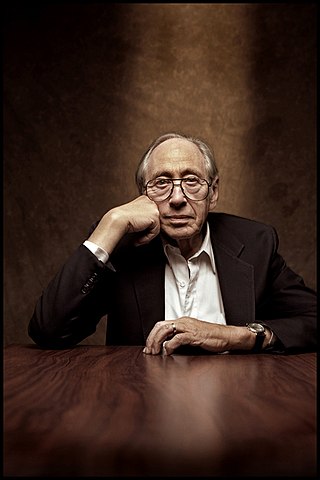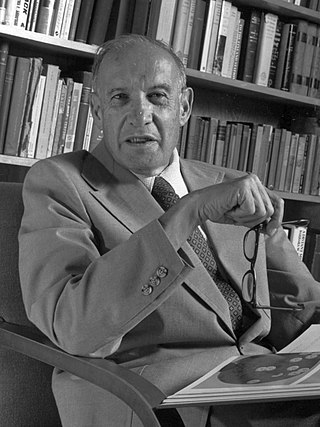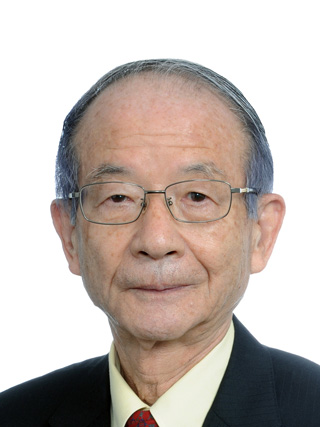
Alvin Eugene Toffler was an American writer, futurist, and businessman known for his works discussing modern technologies, including the digital revolution and the communication revolution, with emphasis on their effects on cultures worldwide. He is regarded as one of the world's outstanding futurists.

Information economy is an economy with an increased emphasis on informational activities and information industry, where information is valued as a capital good. The term was coined by Marc Porat, a graduate student at Stanford University, who would later co-found General Magic.

In sales, commerce, and economics, a customer is the recipient of a good, service, product, or an idea, obtained from a seller, vendor, or supplier via a financial transaction or an exchange for money or some other valuable consideration.

In the field of management, strategic management involves the formulation and implementation of the major goals and initiatives taken by an organization's managers on behalf of stakeholders, based on consideration of resources and an assessment of the internal and external environments in which the organization operates. Strategic management provides overall direction to an enterprise and involves specifying the organization's objectives, developing policies and plans to achieve those objectives, and then allocating resources to implement the plans. Academics and practicing managers have developed numerous models and frameworks to assist in strategic decision-making in the context of complex environments and competitive dynamics. Strategic management is not static in nature; the models can include a feedback loop to monitor execution and to inform the next round of planning.

Peter Ferdinand Drucker was an Austrian American management consultant, educator, and author, whose writings contributed to the philosophical and practical foundations of modern management theory. He was also a leader in the development of management education, and invented the concepts known as management by objectives and self-control, and he has been described as "the champion of management as a serious discipline".
Management by objectives (MBO), also known as management by planning (MBP), was first popularized by Peter Drucker in his 1954 book The Practice of Management. Management by objectives is the process of defining specific objectives within an organization that management can convey to organization members, then deciding how to achieve each objective in sequence. This process allows managers to take work that needs to be done one step at a time to allow for a calm, yet productive work environment. In this system of management, individual goals are synchronized with the goals of the organization.

Gary P. Hamel is an American management consultant. He is a founder of Strategos, an international management consulting firm based in Chicago.

Michael Eugene Porter is an American businessman and professor at Harvard Business School. He was one of the founders of the consulting firm The Monitor Group and FSG, a social impact consultancy. He is credited with creating Porter's five forces analysis, a widely-used management framework. He is generally regarded as the father of the modern strategy field. He is also regarded as one of the world's most influential thinkers on management and competitiveness as well as one of the most influential business strategists. His work has been recognized by governments, non-governmental organizations and universities.
In marketing, the unique selling proposition (USP), also called the unique selling point or the unique value proposition (UVP) in the business model canvas, is the marketing strategy of informing customers about how one's own brand or product is superior to its competitors.

Harvard Business Review (HBR) is a general management magazine published by Harvard Business Publishing, a not-for-profit, independent corporation that is an affiliate of Harvard Business School. HBR is published six times a year and is headquartered in Brighton, Massachusetts.
In Search of Excellence is a book written by Tom Peters and Robert H. Waterman Jr. First published in 1982, it sold three million copies in its first four years, and was the most widely held monograph in the United States from 1989 to 2006. The book explores the art and science of management used by several companies in the 1980s.

Rosabeth Moss Kanter is an American sociologist who is a professor of business at Harvard Business School. She co-founded the Harvard University Advanced Leadership Initiative and served as Director and Founding Chair from 2008 to 2018. She was the top-ranking woman—No. 11 overall—in a 2002 study of Top Business Intellectuals by citation in several sources. She was named one of the "50 most powerful women in Boston" by Boston Magazine and named one of "125 women who changed our world" over the past 125 years by Good Housekeeping magazine in May 2010.

Coimbatore Krishnarao Prahalad was an Indian-American entrepreneur and author.

Philip Kotler is an American marketing author, consultant, and professor emeritus; the S. C. Johnson & Son Distinguished Professor of International Marketing at the Kellogg School of Management at Northwestern University (1962–2018). He is known for popularizing the definition of marketing mix. He is the author of over 80 books, including Marketing Management, Principles of Marketing, Kotler on Marketing, Marketing Insights from A to Z, Marketing 4.0, Marketing Places, Marketing of Nations, Chaotics, Market Your Way to Growth, Winning Global Markets, Strategic Marketing for Health Care Organizations, Social Marketing, Social Media Marketing, My Adventures in Marketing, Up and Out of Poverty, and Winning at Innovation. Kotler describes strategic marketing as serving as "the link between society's needs and its pattern of industrial response."

Charles Brian Handy, CBE was an Irish author and philosopher who specialised in organisational behaviour and management. Among the ideas he advanced are the "portfolio career" and the "shamrock organization".
Management fad is a term used to characterize a change in philosophy or operations implemented by a business or institution. It amounts to a fad in the management culture of an institution.
Bob Buford was an American cable-TV pioneer, social entrepreneur, author, and venture philanthropist. He co-founded Leadership Network in 1984 and later the Halftime Institute in 1998. Bob became founding chairman in 1988 of what was initially called The Peter F. Drucker Foundation for Nonprofit Management and popularized the concept of Halftime through several books he authored.

Ikujiro Nonaka is a Japanese organizational theorist and Professor Emeritus at the Graduate School of International Corporate Strategy of the Hitotsubashi University, best known for his study of knowledge management.
William James Reddin also known as Bill Reddin was a British-born management behavioralist, theorist, writer, and consultant. His published works examined and explained how managers in profit and non-profit organizations behaved under certain situations and conditions. The focus of his work was to understand to what extent managers were effective in their role and successful in managing situations to have the right impact on the organization's objectives.
The Global Peter Drucker Forum is an international management conference dedicated to the management philosophy of Peter Drucker. Drucker, who lived from 1909 to 2005, was a management professor, writer, and consultant, frequently referred to as a "management guru". The Forum is held annually in November, in Drucker's home town of Vienna, Austria. It is organized by Richard Straub, the founder and president of the Global Peter Drucker Forum and the Peter Drucker Society Europe, which is an affiliate of the Drucker Institute at Claremont Graduate University.













